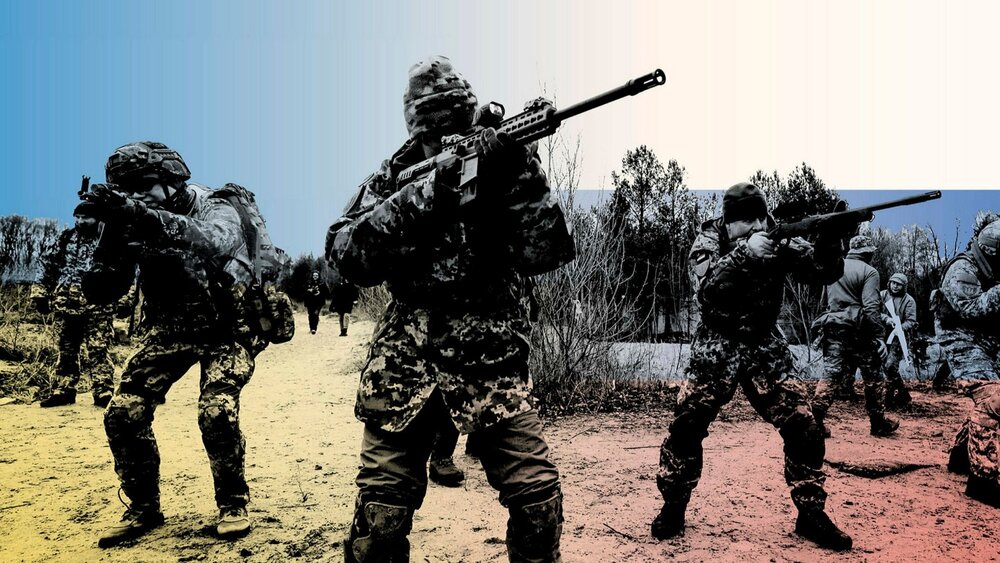The choices that built and impaired the post-war order

The Russian invasion of Ukraine has occurred at a time when there is a global consensus regarding Ukraine’s sovereignty and that the freedom to choose its alliances must be unconditionally preserved.
The military intervention in Ukraine is widely regarded as a political tragedy as well as a colossal challenge to the existing world order. Two immediate questions come to mind: (1) what can be done to protect and help the innocent Ukrainians caught in the middle of this war and (2) how can such aggression be stopped? No-one has good answers to these questions, and this uncertainty has everyone on edge, but it is clear that employing sanctions while seeking diplomatic routes to cease-fire has become unavoidable. Let us be clear about how we got here.
Historians remind us that major wars—both at the global and regional levels—tend to be pursued by either a new world order or a revised one. World Wars I and II were followed and accompanied by the creation of new states and a UN rules-based international order respectively. In both cases, great powers were involved in shaping the ensuing contours of geopolitical competition and its limits. New security architectures in Europe, Asia, the Middle East and North Africa, and Latin America reflected these new geopolitical rivalries and accommodations. The new world order—predicated on a rules-based, multilateral, and dialogue centric principles—proved to be tenable, albeit at times short of being broadly-based. In the post-Cold War era, however, this order failed to build an all-inclusive international order in which Russia could have had a fair share if not an equal leverage.
In Europe, romanticizing the expansion of NATO by stretching it from the Baltic Republics to Russia’s doorstep has led to resentment and outright embarrassment in Moscow. In the Middle East, US foreign policy has often conflicted with a rules-based international order. The US strategic alliance with Israel has existed to the detriment of the Palestinian territorial claims. In 1953, US engineered a coup against a duly elected government of Iranian Prime Minister Mohammad Mossadeq. The US invasion of Iraq in 2003 was in clear violations of the UN Charter. Likewise, the US unilateral withdrawal from the Iran nuclear deal (JCPOA) under the Trump administration pulled the rug from under a multilateral agreement signed by key international actors (Shibley Telhami. Brookings, February 25, 2022). All these examples serve as grim reminders of the perils of promoting an international order that is based on a rules-based system, but is selectively upheld when it is seen as consistent with US interests and conveniently disregarded when it is not.
By the same token, the Russian military intervention in Syria was an equally alarming example of propping up its client state in Damascus. Russia’s actions in Syria posed serious challenges to international law, a subject that has now been revisited by the Ukrainian crisis. It is worth noting that the Russian invasion of Ukraine has left the Kremlin with little global support, not even from China whose surplus trade with the United State and the European Union (The New York Times, February 27, 2022:14) leaves little doubt as to what side China would eventually choose. Except for its domestic ultra-nationalist/populist forces in Russia and a few countries—such as Belarus, Eritrea, North Korea, and Syria—Russia has received no strong support for its invasion of Ukraine among its allies. Outrageous images of a brewing refugee crisis and embattled, innocent Ukrainian citizens cry out for an immediate political solution to this crisis.
Brute force has never resolved regional tensions. The invasion of Ukraine not only has failed to compel NATO member states to rollback their expansion, but to the contrary Russian belligerence has strengthened their forces on the ground and will most likely expand their defense expenditures in the coming years. Consider, for example, the case of Germany, which has in recent decades enjoyed good commercial ties with Russia. In a remarkable address to a special session of Parliament, Chancellor Olaf Scholz announced a notable increase in military spending the country’s longstanding policy that has prioritized deterrence ahead of conflict. Mr. Scholz announced an increase of 100 billion euros ($113 billion) to beef up military funding in addition to a move to spend more than 2 percent of Germany’s economic output annually on defense (The New York Times, February 27, 2022).
Putin is trapped in an unwinnable war as he faces an unprecedented groundswell of opposition developed around the world against his military plans in Ukraine. A nagging question persists: Will Russians have an appetite for facing a longstanding insurrection and resistance from the Ukrainians? Why is that a wrong question to ask? Such a resistance must have been clear beyond doubt to the Russian leaders given the unpleasant experiences and long-lasting and vividly painful memories of the Soviet intervention in Afghanistan.
The long-term impact of sanctions on the Russia’s Central Bank will prove to be debilitating not only to ordinary Russians but to the country’s overall economy, raising the price of this military adventure to an unbearable level for the Kremlin. Putin and his close aides can no longer rule out the possibility of Russia becoming a pariah state nor can they underestimate the possibility of a massive humanitarian catastrophe in Ukraine. They would do well by heeding the call for de-escalation. Absent a diplomatic off-ramp, many innocent civilians will be indefensibly killed.
Mahmood Monshipouri, PhD, teaches international relations at San Francisco State University and is the author, forthcoming, of In the Shadow of Mistrust: The Geopolitics and Diplomacy of US-Iran Relations (NY: Oxford University Press
Leave a Comment